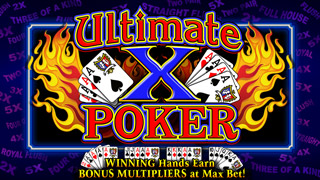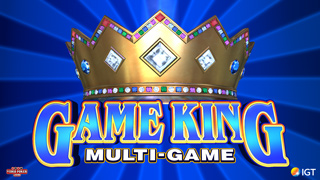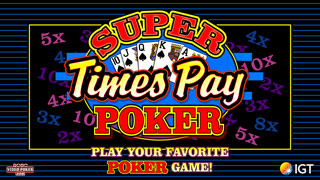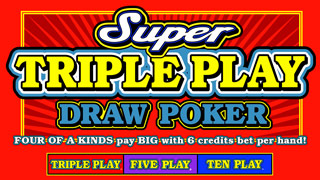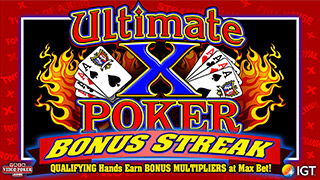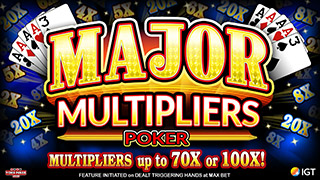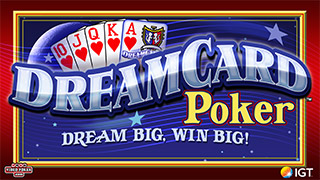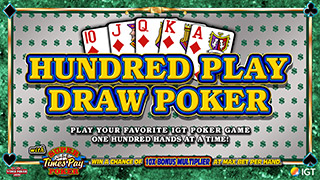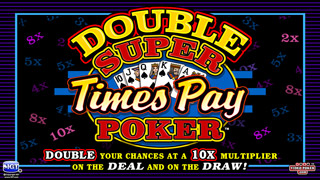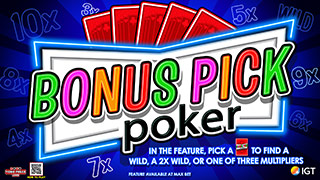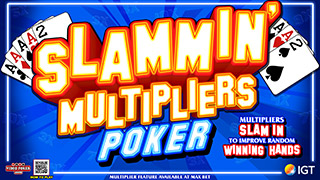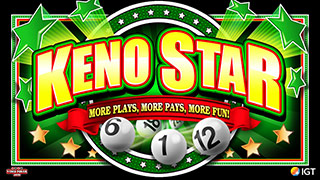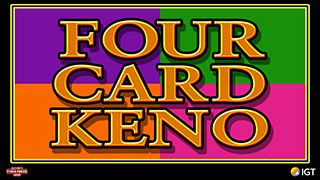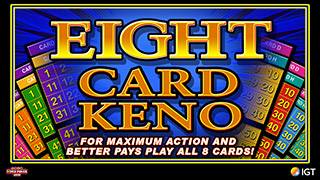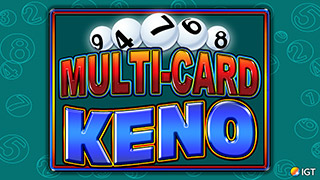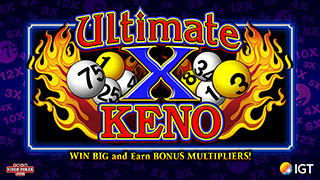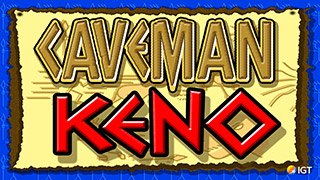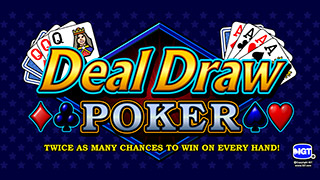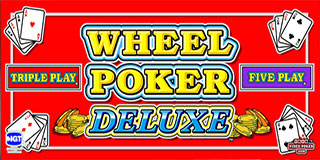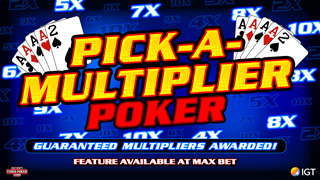When is enough enough?
-
weekendplayer
- Forum Rookie
- Posts: 13
- Joined: Thu Mar 05, 2009 11:58 am
When is enough enough?
Last summer the local Indian casino opened it's new expansion. New banks of vp machines were put on line. Finally some decent pay tables. 9/6 JOB & NSUD $1 machines. I primarly play JOB, but I realized that the 99.7% return on NSUD is better than the 99.5% on JOB. Add another .375% cash back on triple points day and another .25% (aprox) bounce back I was looking at 100.375% return for perfect play. Great, a beatable game within 10 miles of my house.
So I go to work learning and practicing NSUD. After many (80+) hours of practice, I honed my skill to the point were my playing errors are costing me about 0.1%, as measured by Dancer's WinPoker. I'm ready.
After 13 hours of play over 5 sessions, I played 8000 hands based on club points earned. I play max credits, $5 / hand. To this point, I have lost $3600 to the machines. $3600!!! As a person with limited means, this is no pittance.
I realize NSUD has a higher variance than JOB. I also know that 8000 hands is not much of a sample size. I know that not hitting the 4 dueces or the royal can cost me about 5.5%, but I did hit the deuces once.
I plugged these numbers into Dancer's VPFW bankroll calculator. 8000 rounds, $3600 stake, $12000 profit cutoff. Result: chances of ruin 2%.
The way I read this is the chance of me playing 8000 hands of $5 NSUD and losing $3600 is 2%.
What a terrible start to my semi-pro NSUD career. What did I do to deserve ending up in the bottom 2%?
At this rate, by the time I play the 40,000 hands, and hopefully hit a royal, I'll be down $14,000. Comps won't cover a 7% loss rate.
Some things I noticed:
All 5 playing sessions were losers. Ranging from -400 to -1400.
The last 5 hours of play I had no royals with a deuce, a hand that should come up about once an hour.
The bank of machines I play has fewer players than other $1 machines even though the pay tables are better. I've told my friends (all less mathematically inclined than myself) where the more lucrative machines are. They don't like playing them. They perfer playing their "lucky machines". It just seems like a lot of people avoid these machines.
Can these machines be rigged? My faith in a fair game at the local Indian casino is wavering. If the State is profiting from a larger casino profit, why would the State Gaming Commission want to reduce that profit? This casino contributes to politicians, who in turn appoint members of the State Gamimg Commission. Huge conflict of interest. I don't live in Nevada, where there is open competition for gaming licenses. In my state, Indian tribes have a monopoly on casino gaming. I believe Nevada offers fair games, I'm just having doubts about my local casino.
I hate having to sound paranoid, like some loser grasping at straws to justify his misfortune. I would just like to know how much should I lose before I determine I'm not up against a fair machine. The machines are "IGT" Game Master, not some off brand.
I've had losing streaks before, I know they can happen. What scares me about this one is that it started as soon as I started playing a new game on a new machine. How far do I have to go before saying enough is enough?
So I go to work learning and practicing NSUD. After many (80+) hours of practice, I honed my skill to the point were my playing errors are costing me about 0.1%, as measured by Dancer's WinPoker. I'm ready.
After 13 hours of play over 5 sessions, I played 8000 hands based on club points earned. I play max credits, $5 / hand. To this point, I have lost $3600 to the machines. $3600!!! As a person with limited means, this is no pittance.
I realize NSUD has a higher variance than JOB. I also know that 8000 hands is not much of a sample size. I know that not hitting the 4 dueces or the royal can cost me about 5.5%, but I did hit the deuces once.
I plugged these numbers into Dancer's VPFW bankroll calculator. 8000 rounds, $3600 stake, $12000 profit cutoff. Result: chances of ruin 2%.
The way I read this is the chance of me playing 8000 hands of $5 NSUD and losing $3600 is 2%.
What a terrible start to my semi-pro NSUD career. What did I do to deserve ending up in the bottom 2%?
At this rate, by the time I play the 40,000 hands, and hopefully hit a royal, I'll be down $14,000. Comps won't cover a 7% loss rate.
Some things I noticed:
All 5 playing sessions were losers. Ranging from -400 to -1400.
The last 5 hours of play I had no royals with a deuce, a hand that should come up about once an hour.
The bank of machines I play has fewer players than other $1 machines even though the pay tables are better. I've told my friends (all less mathematically inclined than myself) where the more lucrative machines are. They don't like playing them. They perfer playing their "lucky machines". It just seems like a lot of people avoid these machines.
Can these machines be rigged? My faith in a fair game at the local Indian casino is wavering. If the State is profiting from a larger casino profit, why would the State Gaming Commission want to reduce that profit? This casino contributes to politicians, who in turn appoint members of the State Gamimg Commission. Huge conflict of interest. I don't live in Nevada, where there is open competition for gaming licenses. In my state, Indian tribes have a monopoly on casino gaming. I believe Nevada offers fair games, I'm just having doubts about my local casino.
I hate having to sound paranoid, like some loser grasping at straws to justify his misfortune. I would just like to know how much should I lose before I determine I'm not up against a fair machine. The machines are "IGT" Game Master, not some off brand.
I've had losing streaks before, I know they can happen. What scares me about this one is that it started as soon as I started playing a new game on a new machine. How far do I have to go before saying enough is enough?
-
oej719
- Video Poker Master
- Posts: 1777
- Joined: Wed Sep 06, 2006 5:46 pm
Short answer is that if you have limited means then gambling should be off limits. Do not play with money that if lost will hurt your lifestyle or your family.
-
weekendplayer
- Forum Rookie
- Posts: 13
- Joined: Thu Mar 05, 2009 11:58 am
I was willing and able to commit 15k to this new venture, without hurting my lifestyle. I'm single so it doesn't hurt anyone else either. But I am frugal. How long do I endure playing at 91% return on a machine that is suppose to return 99.7%? At what point do I say "something's wrong here"?
-
shadowman
- Video Poker Master
- Posts: 3587
- Joined: Mon Oct 23, 2006 5:42 pm
The number of hands is small and there are other results with moderately long cycle times. I once went 13 cycles between wild RFs playing a combination of FPDW and NSUD. VP can be brutal.
I assume you are playing dollars. When I started playing VP at quarters I lost ~$6000 before it turned around. I've had many losing streaks well over $10K playing dollars.
Sometimes I think back and feel that starting off poorly was actually a good thing. It put everything in perspective.
Good Luck in the future.
I assume you are playing dollars. When I started playing VP at quarters I lost ~$6000 before it turned around. I've had many losing streaks well over $10K playing dollars.
Sometimes I think back and feel that starting off poorly was actually a good thing. It put everything in perspective.
Good Luck in the future.
-
Eduardo
- Video Poker Master
- Posts: 2965
- Joined: Thu Aug 31, 2006 7:19 pm
Ouch. Terrible to get stuck in the bottom 2% of the curve. We all dream of that TOP 2%. But that's one out of every 50 people I guess. Hopefully things turn around and you are in the luckier part of 50 next time. It makes me not feel so bad about being stuck in the middle right now.
-
weekendplayer
- Forum Rookie
- Posts: 13
- Joined: Thu Mar 05, 2009 11:58 am
My concern is not about losing the money, it's about losing the money on a machine that I've never won on. If my loss rate was anything near reasonable I wouldn't be posting here. If I would of had one winning or even one break-even session I would not be so concerned. A 13 hour losing streak is not uncommon among a couple on hundred hours of play, but on these machines it's the only 13 hours I've played. There is no indication that the next 13 hours will be any different.
Here's a thought. Skilled players rely on occasional RFs to recoup losses. You know this, the casinos know this. If the casinos wanted a counter messure against skilled players they could restrict the number of RFs. This could easilly be acomplished by removing 1 or more royal flush cards randomly from the deck. Cutting the RF probability in half on a non wild card game would only reduce the game return by about 1%. This wouldn't even be noticed by sloppy players. It would be extremely hard to detect even by skilled players, who might just shrug it off as a long RF drought. This 1% reduction would put skilled players were the casinos want them, losing money even after the comps. For wild card games this scenario is much worse. A RF restriction would also effect the wild RF frequency. These normally cycle every 524 hands. Increasing this cycle would be noticable to anyone noting their frequency over many hours of play. It would substantially reduce the overall return of the game. I'm not saying this is what's happening to me. Its's just a thought. Elvis is most likely dead.
Here's a thought. Skilled players rely on occasional RFs to recoup losses. You know this, the casinos know this. If the casinos wanted a counter messure against skilled players they could restrict the number of RFs. This could easilly be acomplished by removing 1 or more royal flush cards randomly from the deck. Cutting the RF probability in half on a non wild card game would only reduce the game return by about 1%. This wouldn't even be noticed by sloppy players. It would be extremely hard to detect even by skilled players, who might just shrug it off as a long RF drought. This 1% reduction would put skilled players were the casinos want them, losing money even after the comps. For wild card games this scenario is much worse. A RF restriction would also effect the wild RF frequency. These normally cycle every 524 hands. Increasing this cycle would be noticable to anyone noting their frequency over many hours of play. It would substantially reduce the overall return of the game. I'm not saying this is what's happening to me. Its's just a thought. Elvis is most likely dead.
-
Tedlark
- Video Poker Master
- Posts: 8760
- Joined: Mon Oct 02, 2006 12:29 am
I would suspect that removing one or more royal flush cards randomly from the deck could get someone into trouble. This would completely destroy the randomness and eliminate any chance of the remaining cards in the deck of having an equal chance of being drawn to complete the hand. I imagine that regulators might be able to easily determine if this was happening.
-
weekendplayer
- Forum Rookie
- Posts: 13
- Joined: Thu Mar 05, 2009 11:58 am
I'm not sure what you mean by regulartors. If you mean some sort of internal counters that tracks individual card frequencies, or individual pay out frequencies, then yes, I agree this can be detected. But who checks these things. I would think that the people that watch this stuff are more interested in the overall payout of the machines, which can vary greatly just based on the skill levels of the players. As long as the casino hold is within the legal limits, would these numbers be scrutinized? Can I trust the State Gaming Commission to check these things? Do they even care? Is there a Federal agency responsible for setting standards?
-
oej719
- Video Poker Master
- Posts: 1777
- Joined: Wed Sep 06, 2006 5:46 pm
Is this a joke?
-
cddenver
- Video Poker Master
- Posts: 2269
- Joined: Tue Mar 13, 2007 9:54 pm
I think that Ted meant state regulators. In state casinos any game modifications that would cause cards to show up (or not to show up) in anything other than a random fashion is illegal. Game designers can be required to provide source copies of their software to regulators to prove that they're in compliance with the gaming regs. I've never been in an Indian casino so I don't know what codes or policies they have regarding randomness.
It is an interesting thought experiment, though. Let's assume that there's no inspections or testing done, and the only way you could be caught would be by an unusual number of player complaints. If you could do it, what would be the best way without arousing too much suspicion? Just take out a few RF's here and there? Or take a little bit out of every winning hand type? I think that I'd do the latter. Being the "sophisticate" that I am () I'd make sure that I wasn't just "flipping" dropped cards by having the same card value come up on those Straights, Flushes, and Full Houses. Gets noticed too easily, especially by penny VP players.
I might even get REALLY clever and have a slight increase in top pays with an offsetting reduction in lesser pays. Who's going to complain when they're hitting more RF's, Aces, Deuces, etc.?
It is an interesting thought experiment, though. Let's assume that there's no inspections or testing done, and the only way you could be caught would be by an unusual number of player complaints. If you could do it, what would be the best way without arousing too much suspicion? Just take out a few RF's here and there? Or take a little bit out of every winning hand type? I think that I'd do the latter. Being the "sophisticate" that I am () I'd make sure that I wasn't just "flipping" dropped cards by having the same card value come up on those Straights, Flushes, and Full Houses. Gets noticed too easily, especially by penny VP players.
I might even get REALLY clever and have a slight increase in top pays with an offsetting reduction in lesser pays. Who's going to complain when they're hitting more RF's, Aces, Deuces, etc.?



